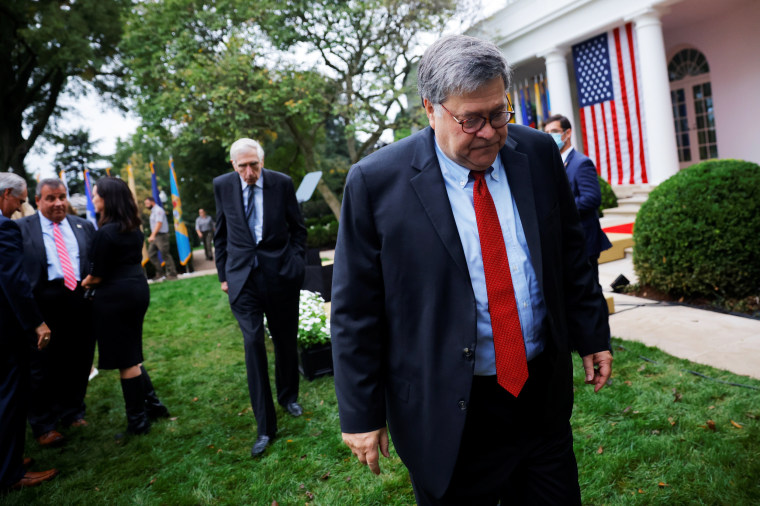Attorney General Bill Barr this week said the opposite of what Donald Trump wanted to hear, conceding to the Associated Press that the Justice Department has looked for evidence of widespread voter fraud, but come up empty. Many of the president's Republican allies, not surprisingly, weren't pleased to see Barr reject the party's principal post-election lie.
But the more important question is what Trump thought -- and what he might do with this dissatisfaction.
At yesterday's press briefing, a reporter asked White House Press Secretary Kayleigh McEnany whether Trump still has confidence in the attorney general. Instead of saying yes -- which would be the normal response -- she replied, "The president, if he has any personnel announcements, you will be the first to know it."
McEnany then quickly sought a different question, seemingly eager to change the subject.
It was against this backdrop that the Washington Post reported that Barr's job may be in jeopardy.
President Trump remained livid at Attorney General William P. Barr on Wednesday, with one senior administration official indicating there was a chance Barr could be fired — not just for his public comments undercutting Trump's unfounded claims of election-shifting fraud, but also for steps he did not take on a probe of the FBI's 2016 investigation into Trump's campaign.
The article noted that Barr's admission about voter fraud sparked presidential complaints, but "Barr and Trump's relationship had been deteriorating even before his comments to the AP." A source added that the two have "barely spoken in recent months," in large part because the president expected the attorney general to use the powers of federal law enforcement to help his re-election campaign, and Barr wasn't quite corrupt enough for Trump's liking.
Last night, NBC News ran a related report, noting that while no decision has been made, the president "has not ruled out the possibility" of firing the attorney general, according to an administration official and two people familiar with the matter.
It would be in keeping with Trump's m.o. of firing those who dare to tell truths he doesn't want to hear.
To be sure, nothing may come of this. Indeed, there are only 48 days remaining in Trump's presidency, so there wouldn't appear to be much of a point.
But it's entirely possible the president may follow through anyway -- in part because he sees value in punishing those whom he believes have betrayed him, and in part because Trump may yet want a sycophantic ally leading the Justice Department over the next seven weeks, who may be even more indifferent toward legal, ethical, and institutional limits than Bill Barr.

